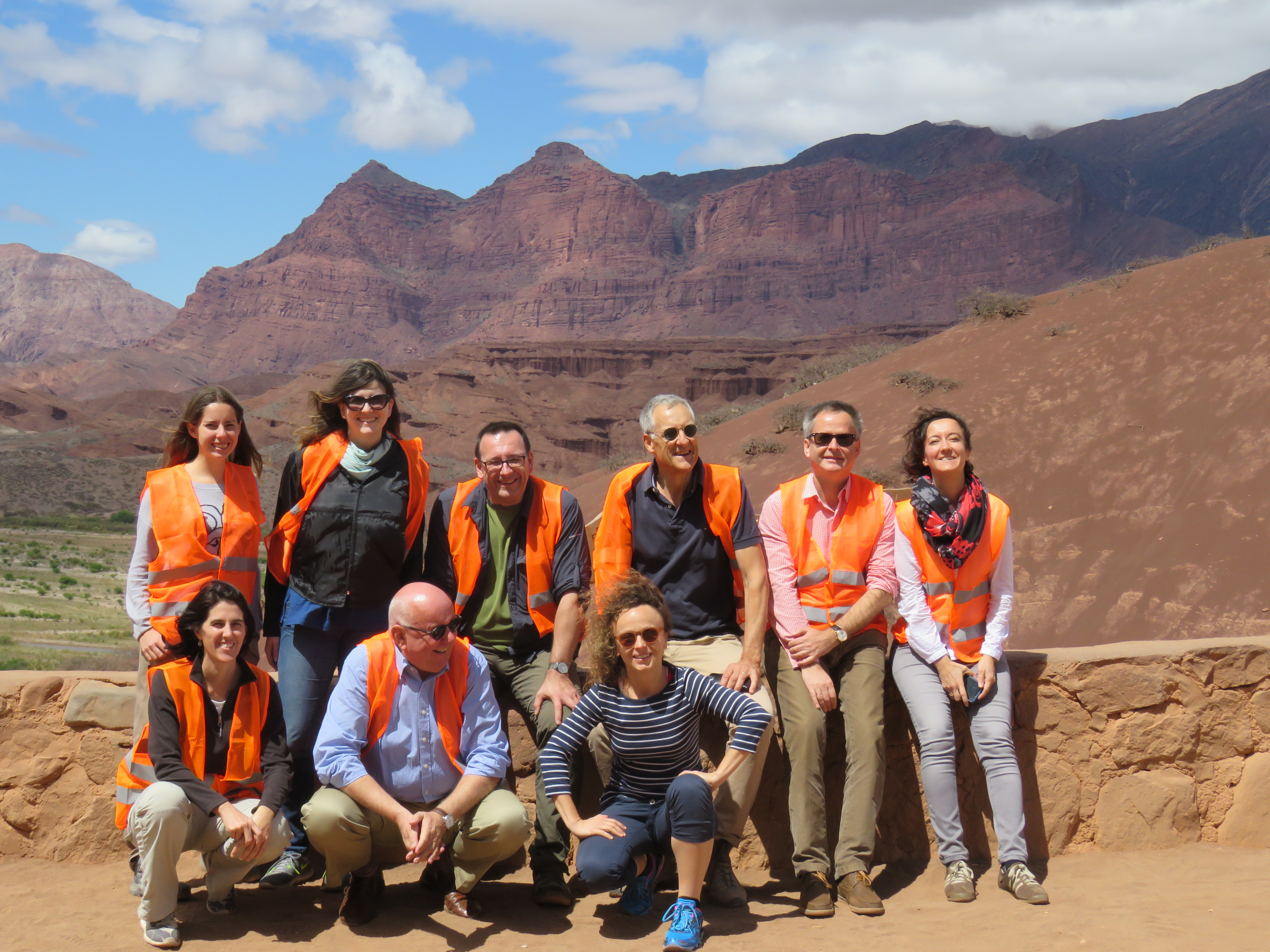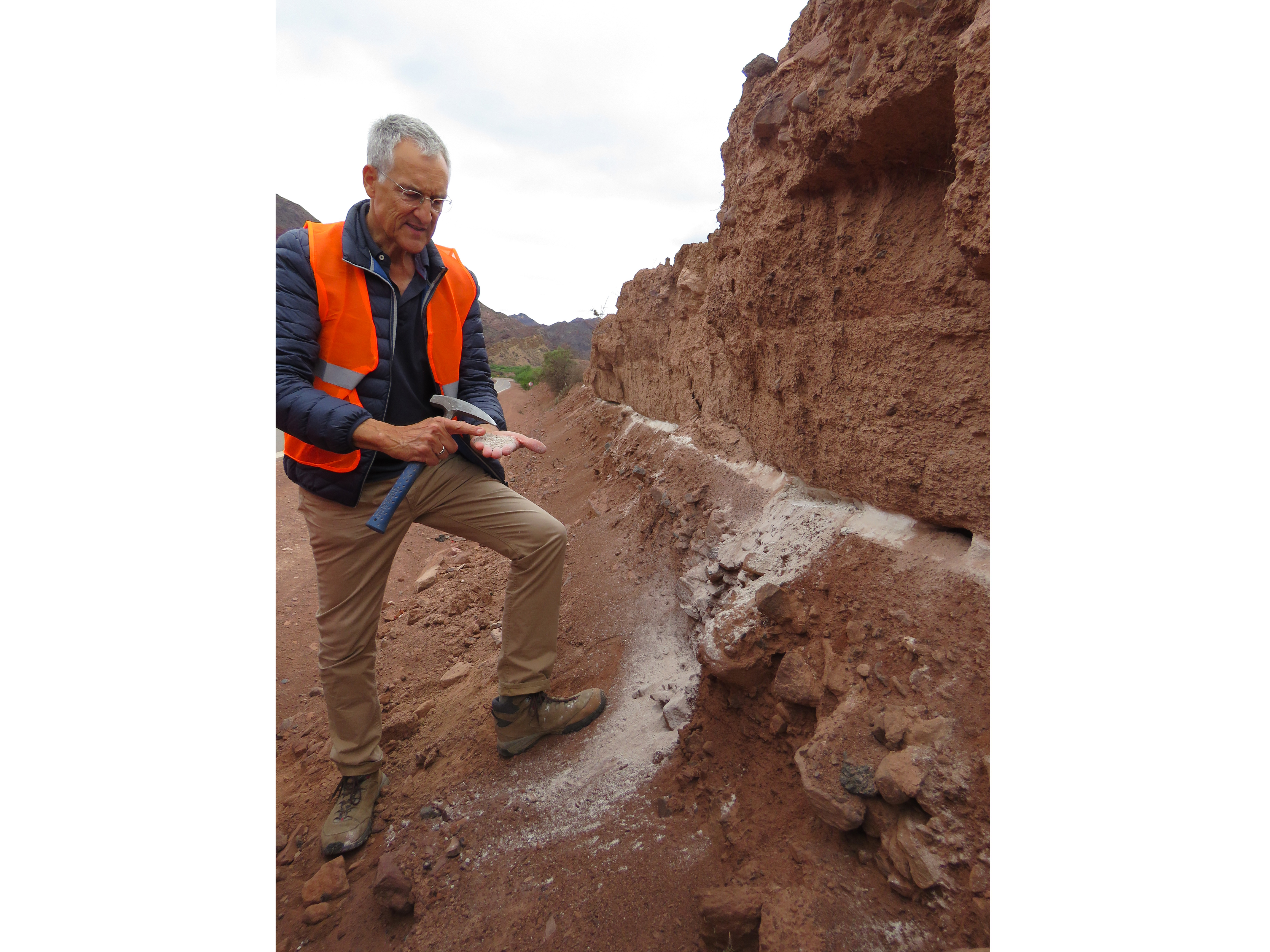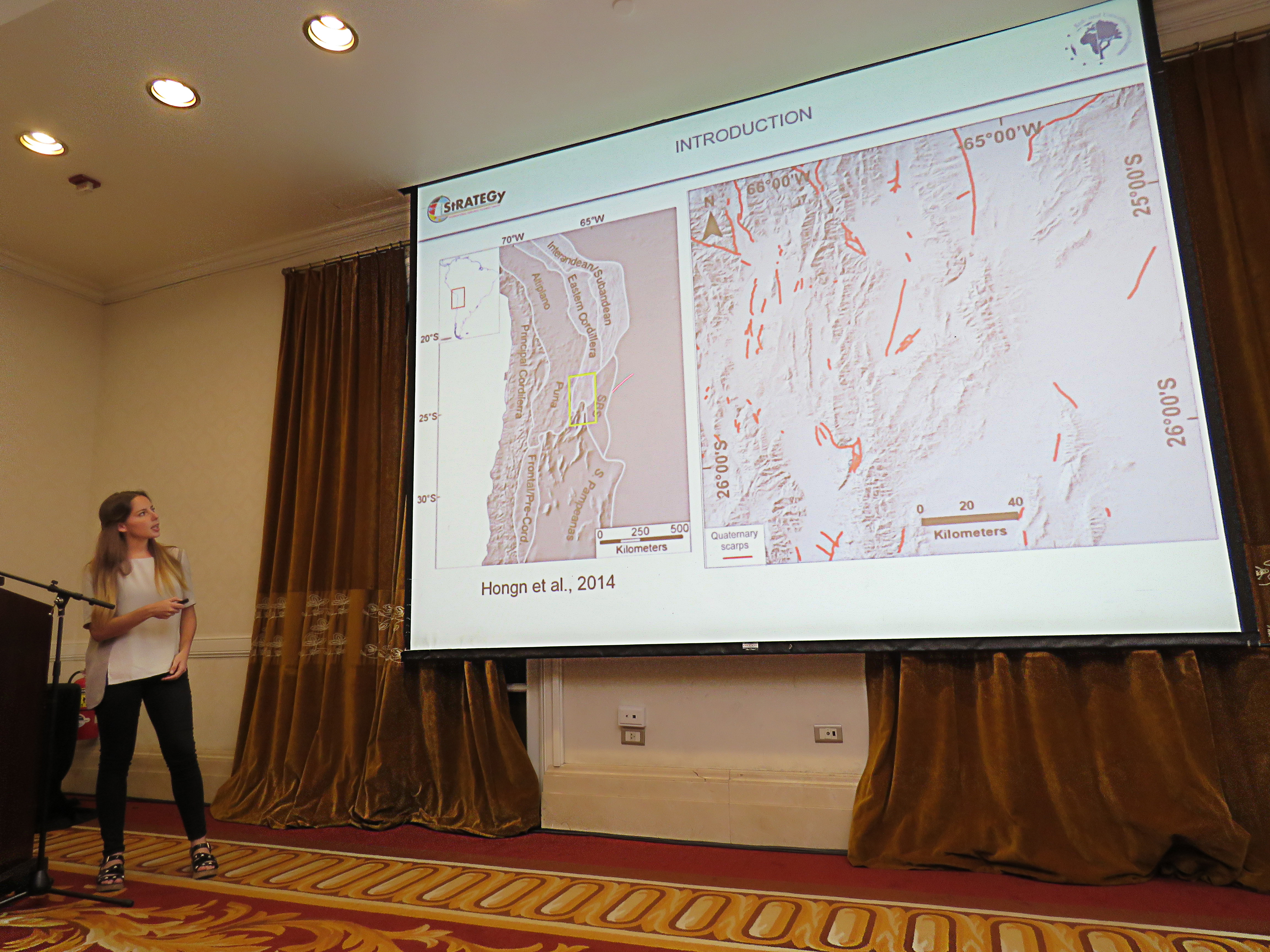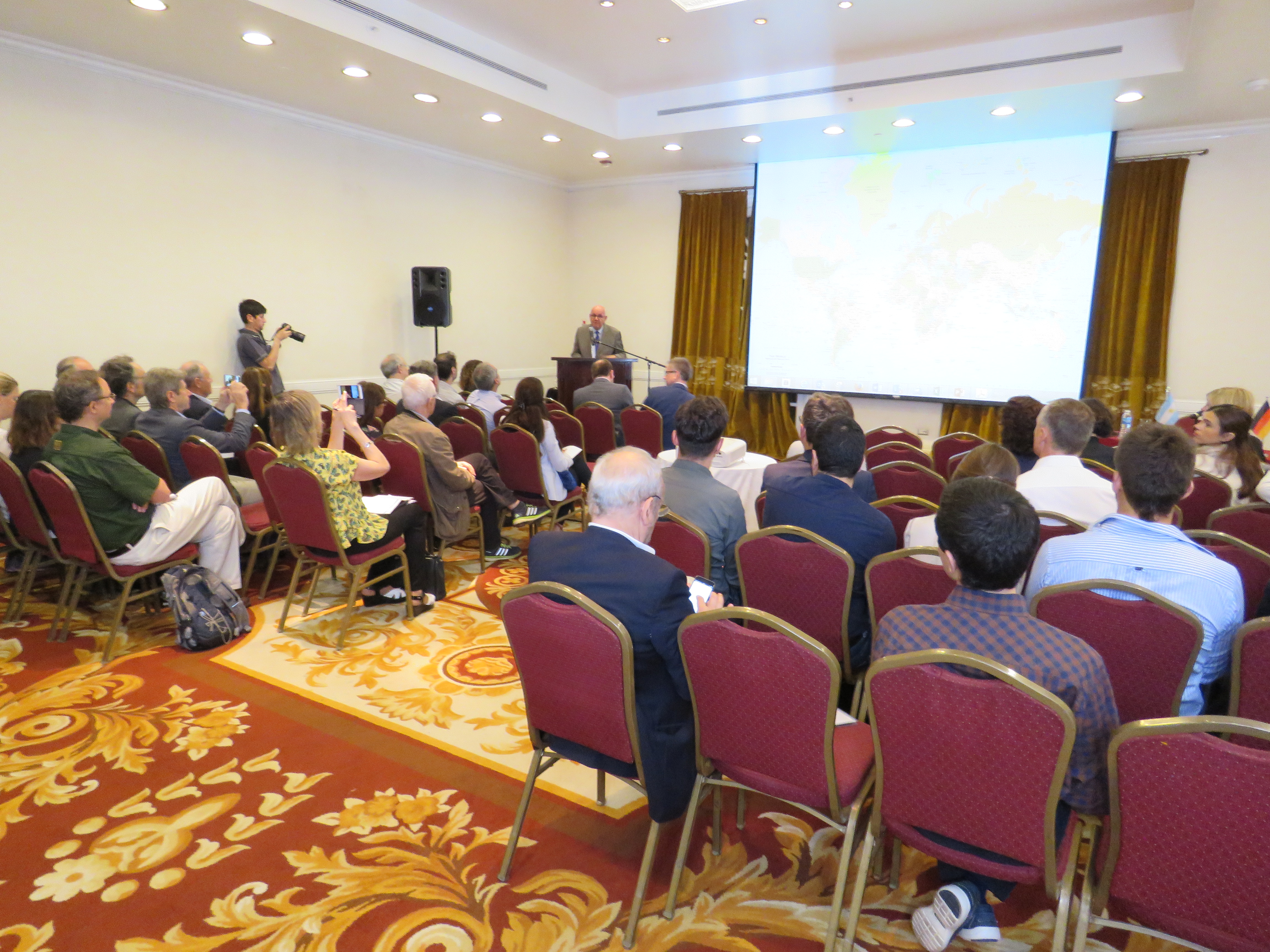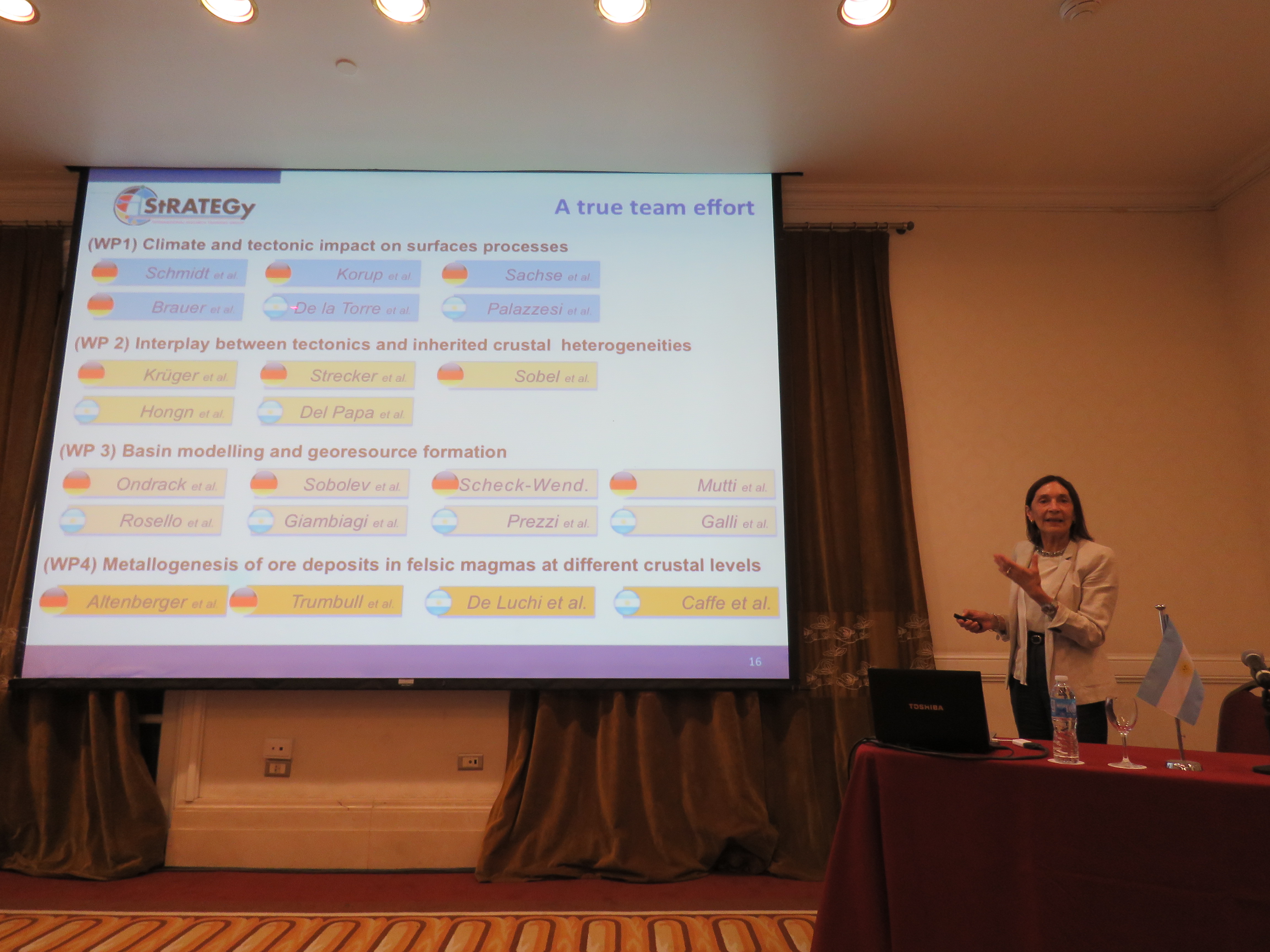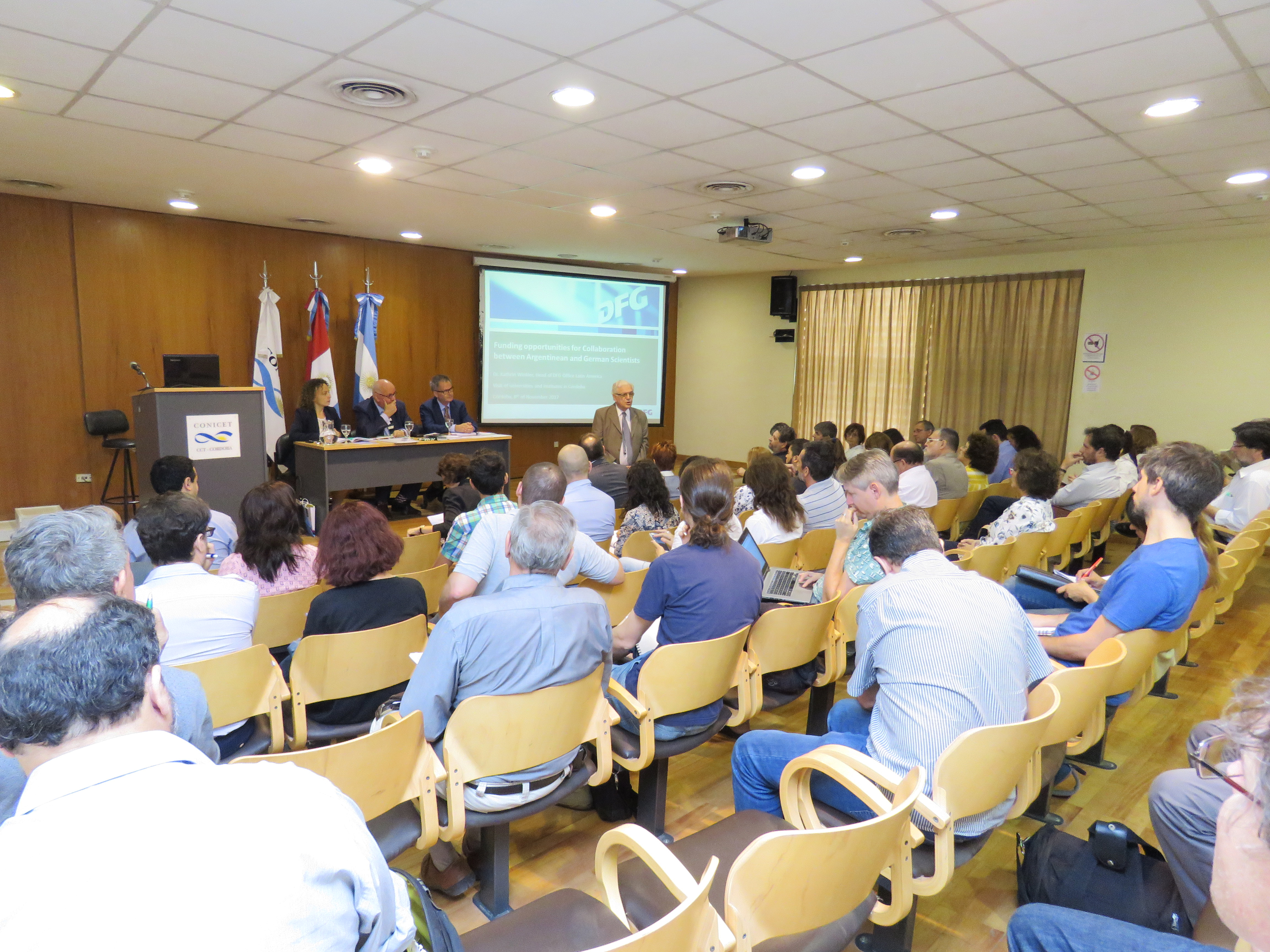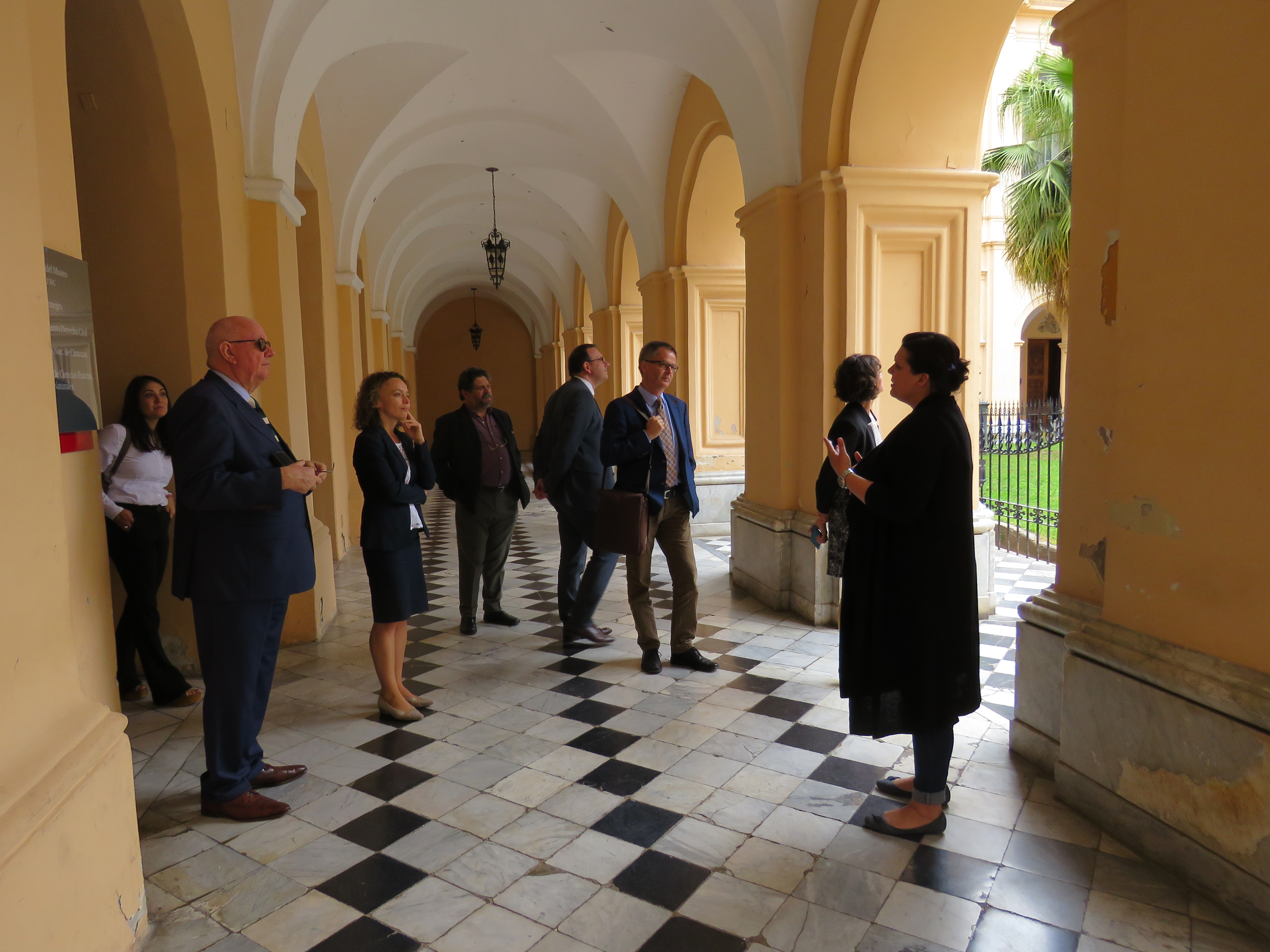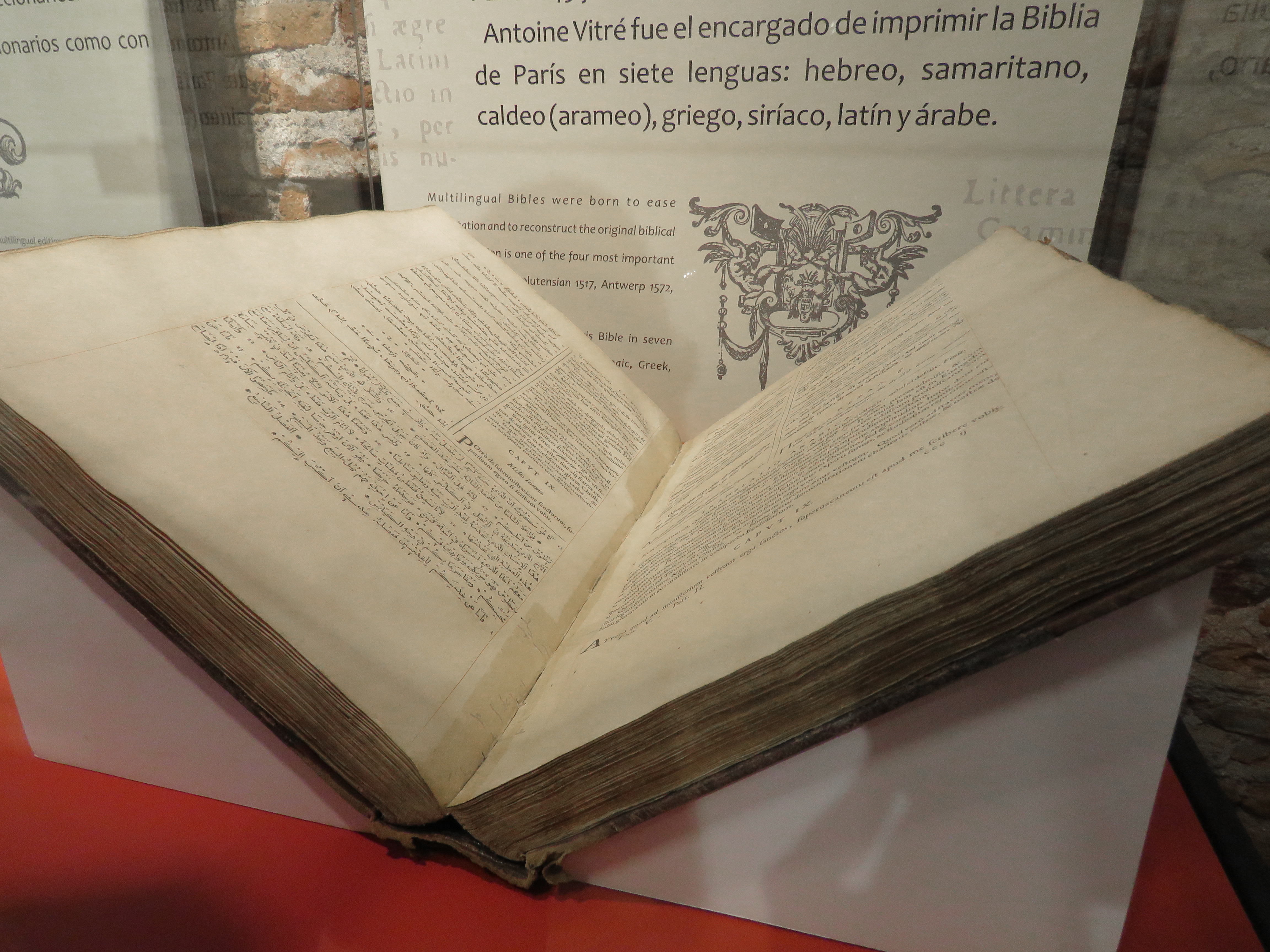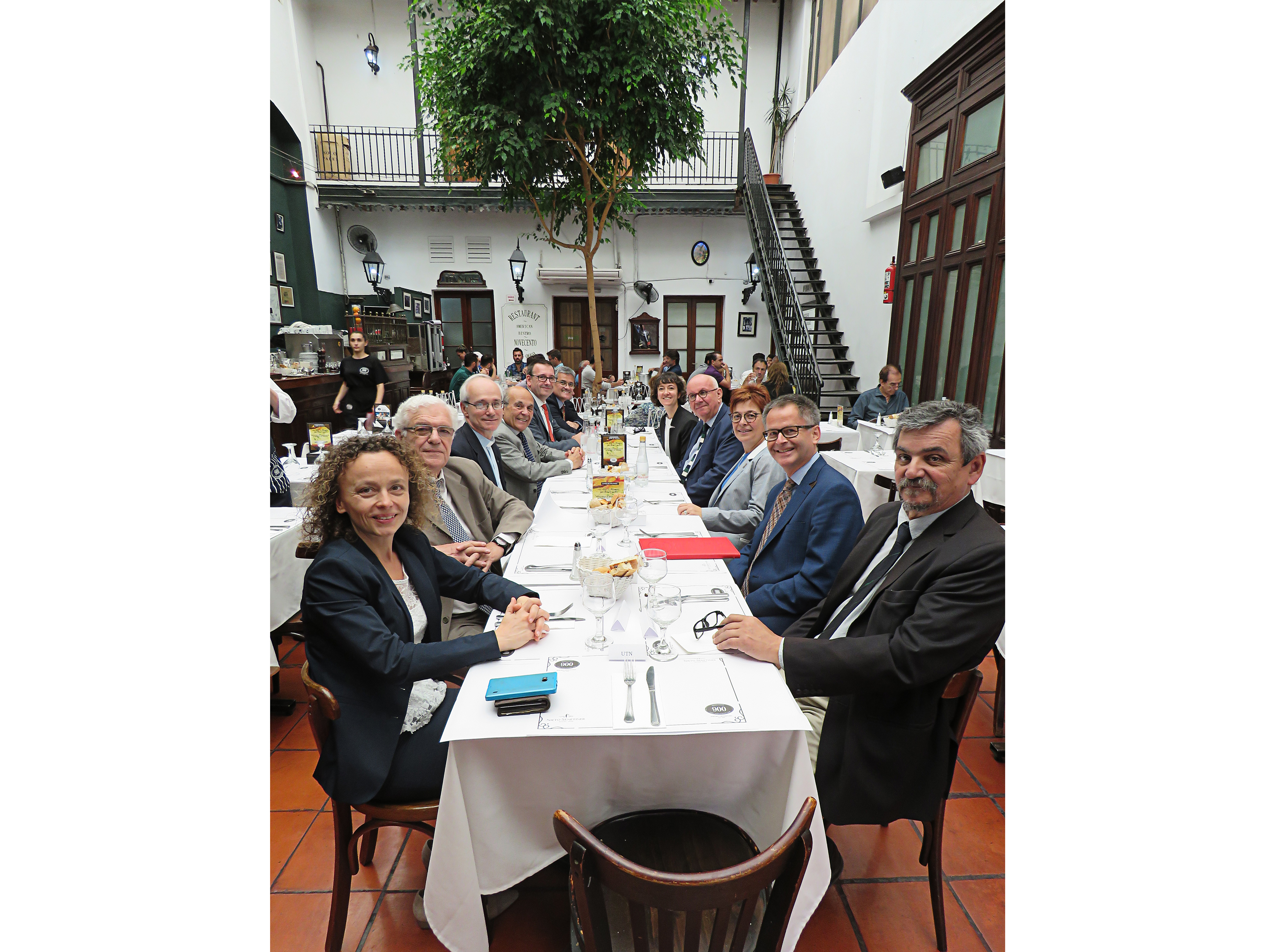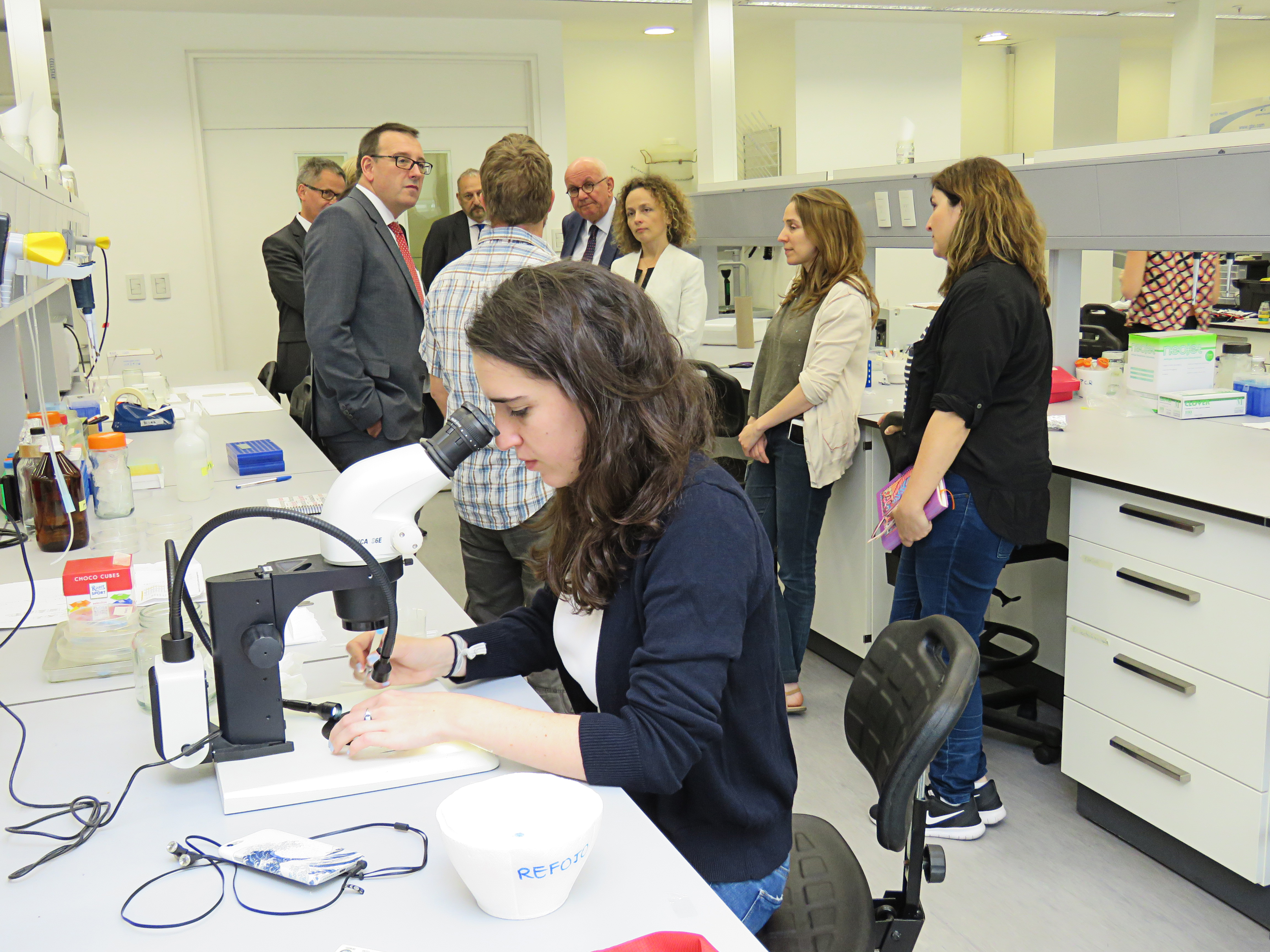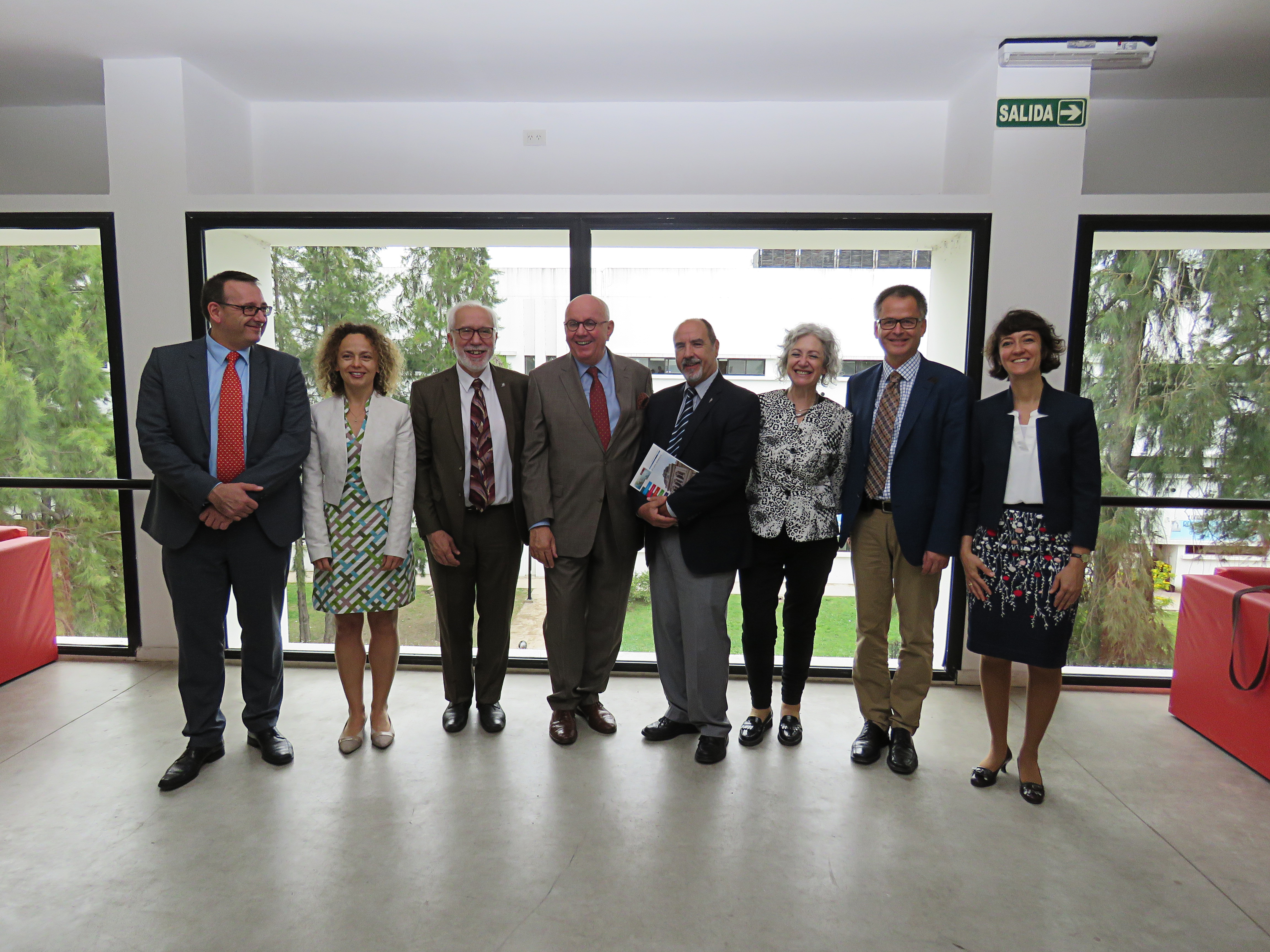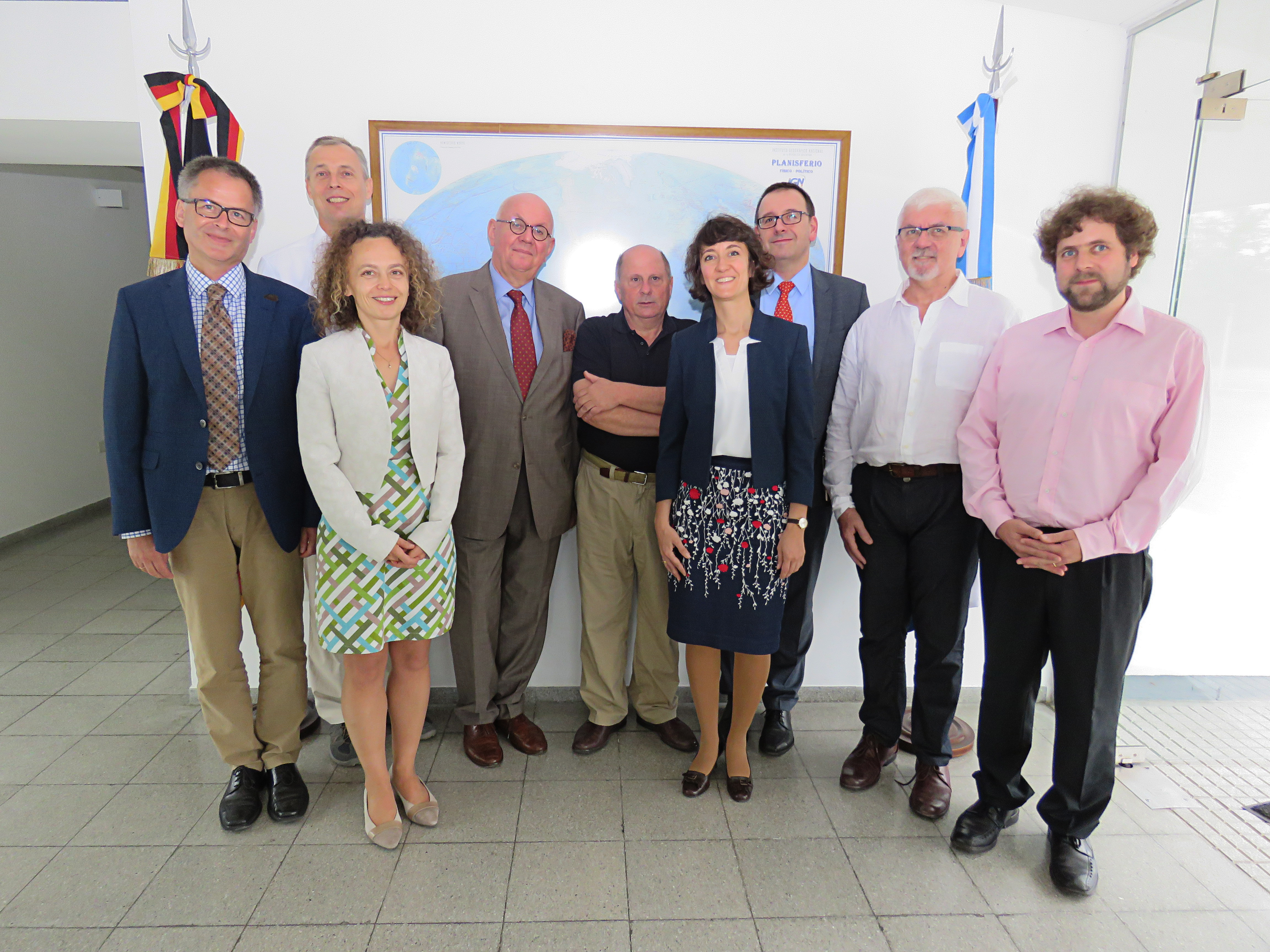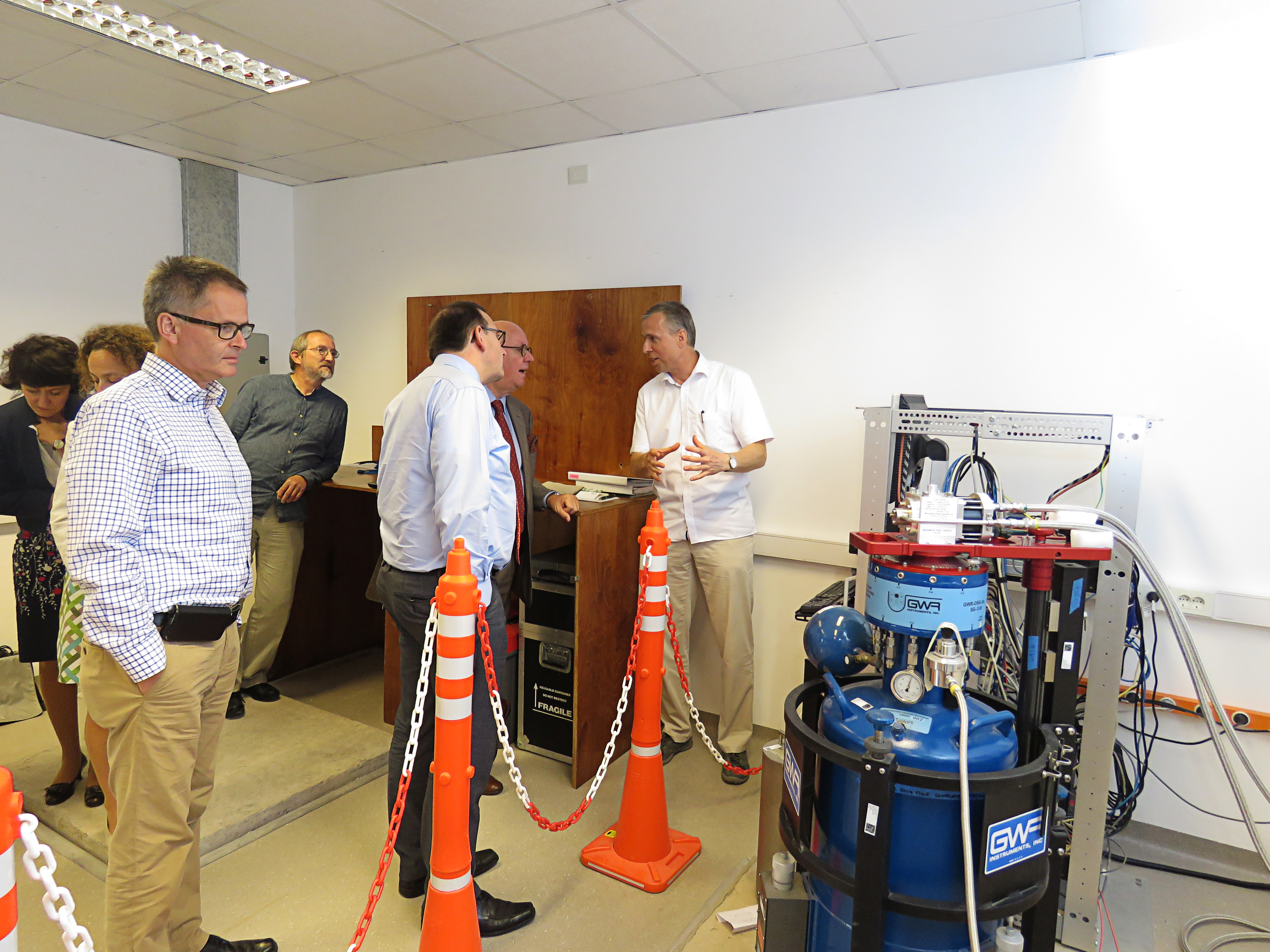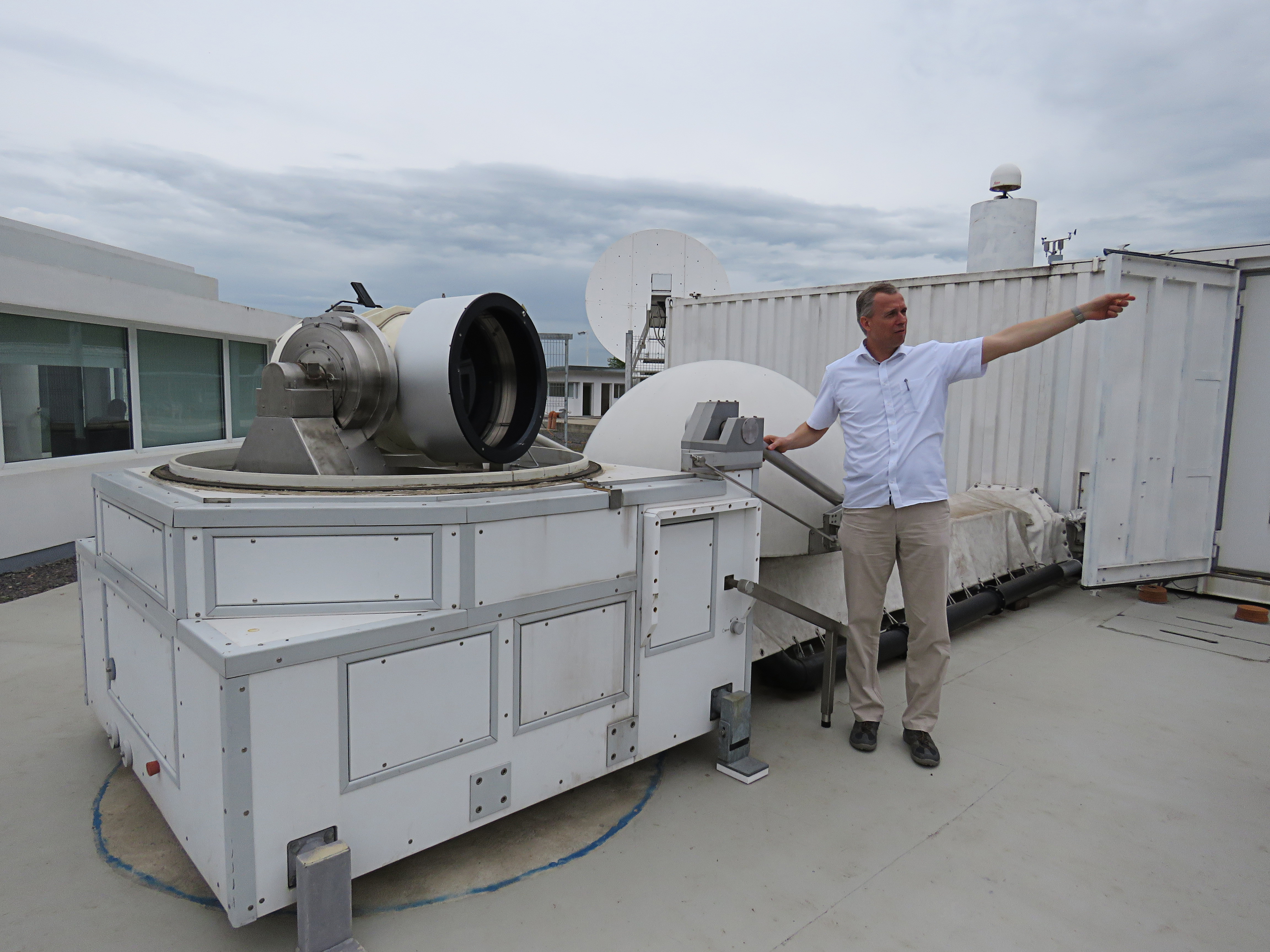DFG President Visits Argentina
Stepping up of Joint Funding Activities between CONICET, MINCYT and DFG
(13.11.17) Exciting research projects, long-term cooperation and effective institutional partnerships: Argentina and Germany can look back on a lasting and fruitful relationship in scientific research and scholarship. During his nearly week-long visit to Argentina, DFG President Prof Dr Peter Strohschneider, accompanied by a delegation, was able to gain a comprehensive picture of the academic strength of German-Argentinian cooperation as well as its general situation. The visit in the second week of November took him to Buenos Aires, La Plata, Córdoba and Salta, where he met with many researchers and research policy makers.
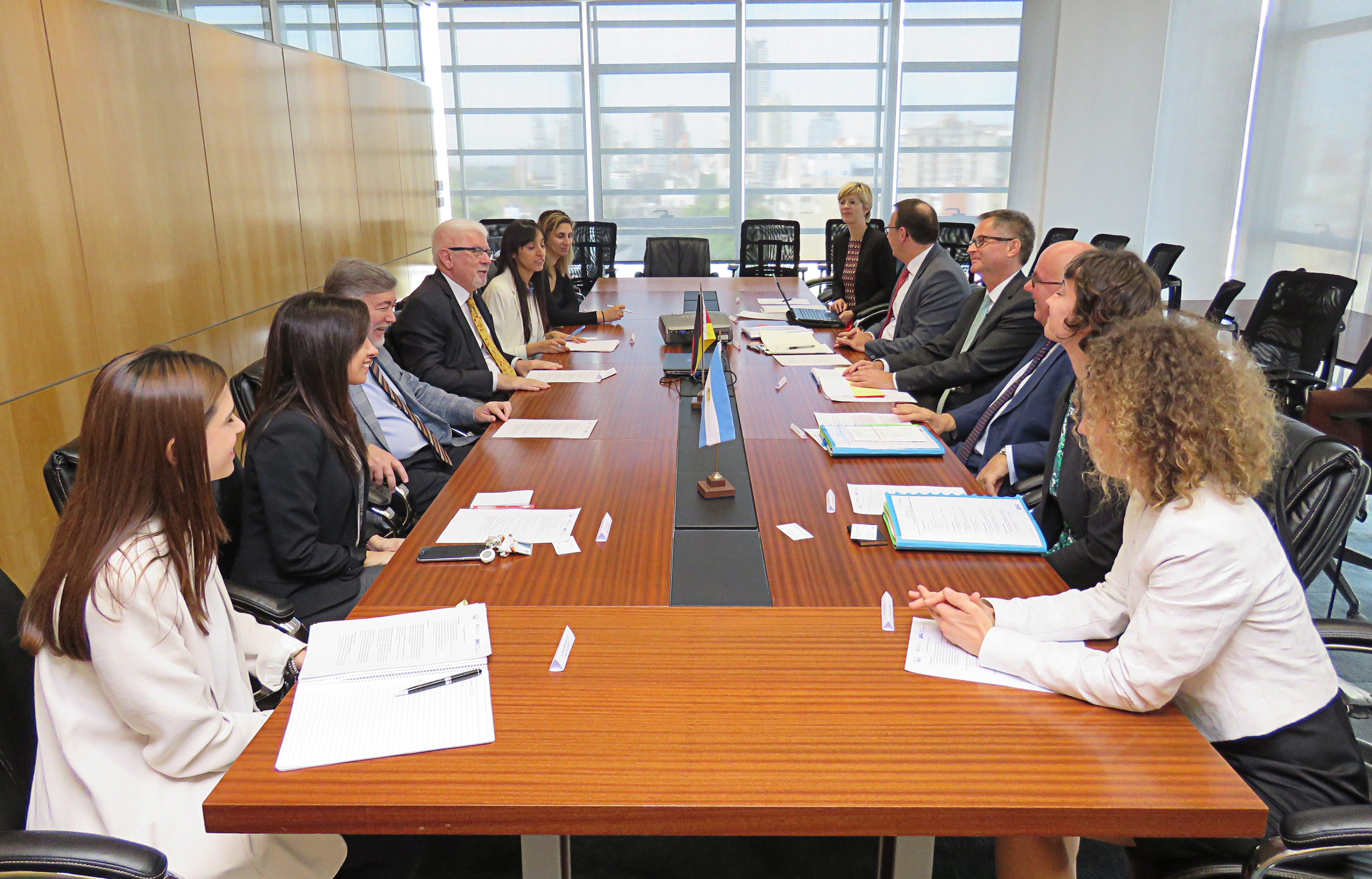
During a meeting with partner organisation CONICET
© DFG
“For some years now we have seen an increase in jointly funded research projects with our Argentinian partners CONICET (National Scientific and Technical Research Council) and MINCYT (Ministry of Science, Technology and Productive Innovation). I am very confident that the years ahead will see even greater joint endeavours between researchers and research institutions in our two countries. We all have good reason to be confident, because we are already witnessing an outstanding level of cooperation in various research areas and programmes,” said Strohschneider.
On the first day of the visit, Prof Strohschneider met with the president of CONICET, Prof Dr Alejandro Ceccatto. In a very open atmosphere, the two presidents and other representatives of CONICET and MINCYT discussed both current and future joint initiatives. The main topic of discussion was plans for another call for proposals, to be issued next year, for bilateral research projects. The participants also discussed ways of raising awareness of the joint funding of coordinated programmes. Since 2015, the DFG and CONICET have been funding an International Research Training Group (IRTG) in the geosciences.
“Internationalisation and participation in the worldwide scientific community are becoming ever more important to a successful research career and are relevant even at an early career stage, such as the doctorate. At the same time, the doctoral phase provides a particularly good opportunity for mobility that benefits more than just individual researchers. They are, after all, important participants in internationalisation, sharing knowledge and methods between different research systems,” said Strohschneider during his visit to Argentina.
From the DFG’s perspective, the IRTG programme is therefore a very appropriate and sustainable funding instrument at international level, enabling research activities with training programmes and the international exchange of doctoral researchers.
As well as these concrete issues, there was also discussion of research policy. Against the background of two very different national research systems, the discussion covered the funding of interdisciplinary and impact-driven research, and its differentiation from disciplinary and purely knowledge-driven research. Strohschneider expressed the view that a research and funding organisation like CONICET, in particular, which has a much broader funding task than the DFG, is an intrinsically pluralistic review and assessment system for the balanced and simultaneous funding of both types of research.
Group photo at the viewpoint of Las Tres Cruces near Cafayate
© DFG
Established in 2015 and funded jointly by CONICET and the DFG, the IRTG ‘Surface Processes, Tectonics and Georesources: The Andean Foreland Basin of Argentina (StRATEGy)’ is the first German-Argentinian research initiative of its kind and was referred to many times during the German delegation’s visit. The funding of this programme reflects not only the long-established cooperation between Argentinian and German geoscientists, a relationship based on mutual trust, but also the excellent institutional cooperation between the DFG and CONICET.
“Having been very open to the idea of joint doctoral programmes, our partner organisation CONICET deserves a great deal of credit for the success of this venture. CONICET has even set up a new funding instrument known as International Research Groups, which is very compatible with our IRTG programme. I am very grateful for the trust and goodwill between our two organisations,” acknowledged Strohschneider.
The DFG delegation was taken on a tour of the StRATEGy working area in the Salta region by the research group’s German spokesperson, Prof Dr Manfred Strecker from the University of Potsdam. Here they got a first-hand impression of the region's geological formations.
On 10 November an information event on International Research Training Groups was held in Buenos Aires, which began with presentations on the funding programmes offered by the DFG (IRTGs) and CONICET (International Research Groups - GII) allowing researchers to submit proposals for this type of project. During the event, Prof. Dr Manfred Strecker and the Argentinian spokesperson Prof Dr Monica López de Luchi (Universidad de Buenos Aires) presented the scientific and structural results of StRATEGy. Four doctoral researchers from the group also presented their research projects in geology and climatology (detailed information is available on the YouTube channel Earth in Progress).
The workshop was mostly attended by researchers in a range of disciplines from various universities and research institutions in Argentina who are already involved in a collaboration with German partners and understand the interest and potential of establishing an international project of this nature. For CONICET and the DFG, the event marked a first milestone in targeted awareness-raising for the IRTG/GII funding programmes. The event concluded with this comment from Strohschneider: “From a sociological point of view, International Research Training Groups are our most enduring cooperation programmes because the doctoral researchers who train in these programmes go on to continue the collaboration between two countries. International, intercultural and interlingual cooperations are complex and can only exist where there is mutual trust.”
Gaining an Insight into Research Activities in Buenos Aires, Córdoba and La Plata
Prof Dr Pedro Depetris welcomes participants at the information event held by CONICET at the National University of Córdoba
© DFG
StRATEGy is an outstanding example of the growing scientific relations between the two countries and organisations. Visits to various universities in Argentina also revealed considerable potential for other cooperation projects.
The delegation was impressed by the tremendous interest shown by the research community in Córdoba at a plenary information event on research cooperation in the auditorium of CONICET Córdoba, which prompted a lively discussion of German-Argentinian research cooperation, including concrete projects. Following words of welcome from Prof Dr Pedro José Depetris, former director of the CONICET office in Córdoba, and Prof Dr Strohschneider, it was the turn of Dr Kathrin Winkler, director of the DFG’s Latin America office, to present the joint funding opportunities offered by the DFG and CONICET. The number of people who attended the event and the discussion that followed both demonstrated the considerable interest in research cooperation with Germany and serves to motivate both organisations to expand their joint funding activities.
This interest was also evident during visits to other institutes. The CONICET Biomedicine Research Institute of Buenos Aires (IBioBA), a partner institute of the Max Planck Society, may be considered an example of best practice in cooperation. Based at the Polo Científico, a research and technology centre, it has been conducting top-level interdisciplinary research in molecular and cell biology since 2011. During a tour of the institute, the director Dr Eduardo Arzt and other researchers gave the delegation a deeper insight into its research activities. The delegates were especially impressed by the integration of visiting researchers and working groups from Germany, an important contribution to internationalisation on the part of the institute.
Guided tour of the MPG partner institute IBioBA in Buenos Aires
© DFG
Not far from Buenos Aires is the city of La Plata, home to the country’s second largest university, the National University of La Plata (UNLP). At a meeting with the rector, Prof Dr Raúl Perdomo, and researchers from the Institute of Humanities and Social Sciences (IdIHCS), there was an exchange of information on the education and research situation at the university, particularly in the context of the fact that the IdIHCS is a partner institute of the Maria Sibylla Merian Centre funded by the German Federal Ministry of Education and Research (BMBF).
Following a visit to the Institute of Theoretical and Applied Physical Chemistry (INIFTA) and the Geological Research Centre, the visit to La Plata was rounded off by a tour of the Argentine-German Geodetic Observatory (AGGO). Formally opened in July 2015 and operated by the German Federal Agency for Cartography and Geodesy (BKG) and CONICET, the observatory is one of the most ambitious cooperation initiatives between the two countries. It is the only facility of its kind in Latin America, forming part of a global infrastructure for Earth observation and the updating of global reference systems. The observatory’s director, Dr Claudio Brunini, the scientific director, Dr Hayo Hase, and other researchers made a deep impression on the delegation with a tour of the facility, explaining their areas of research and the instrumentation.
